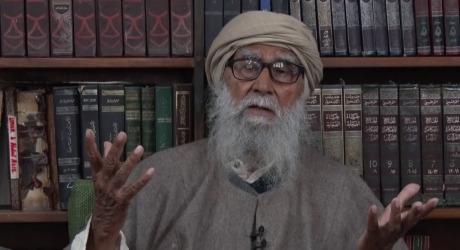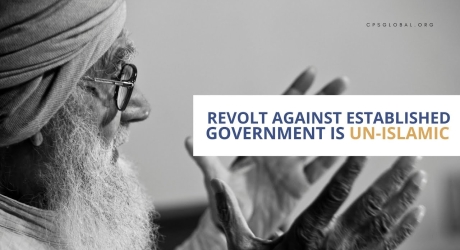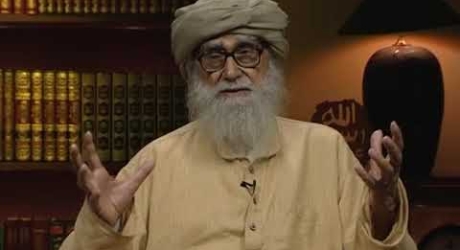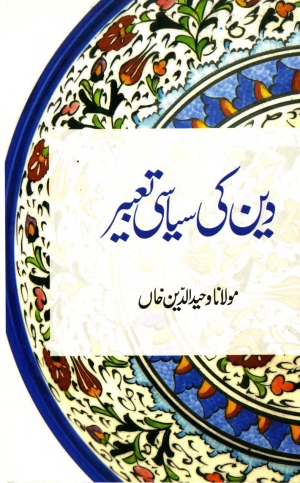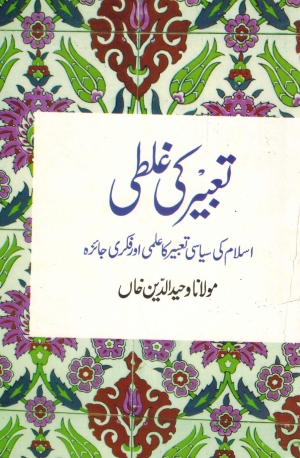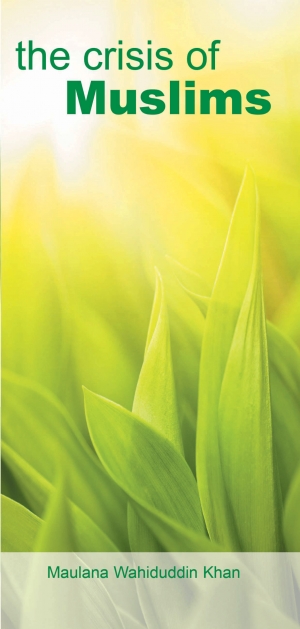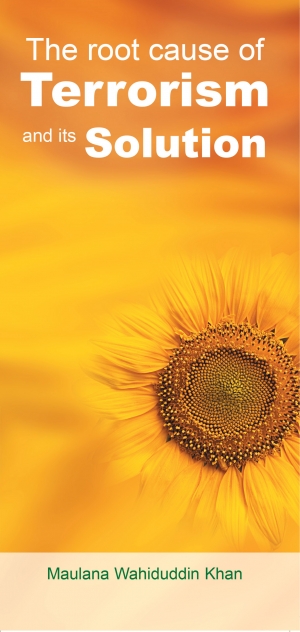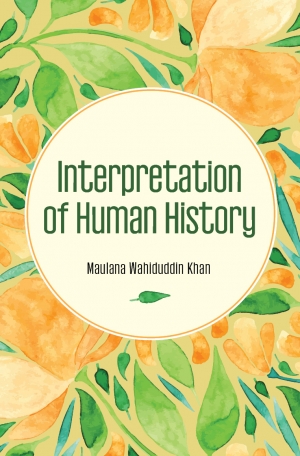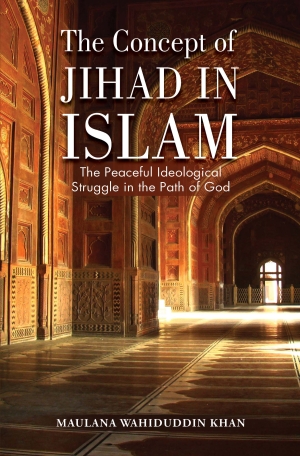Political revolt, khuruj or rebellion against an established government is forbidden in Islam. The Prophet has laid down the principle regarding internal politics that it is wrong to engage in opposition politics once a government is established. Instead, one must engage in the politics of construction in other fields while avoiding political confrontation. In his commentary on the Sahih Muslim, a collection of traditions attributed to the Prophet, the 13th-century Islamic scholar Imam al-Nawawi asserts that revolt (khuruj) is unlawful in Islam, and if one has differences with the ruler, then one should take an appointment with the ruler and engage in a one-to-one conversation with him. However, as far as rebellion (khuruj) against the ruler is concerned, it is haram or unlawful, according to the consensus of the religious scholars. Even if the ruler is corrupt or oppressive. (Sharh al Nawawi alaa Sahih Muslim, 12/ 229)
This principle does not mean abandoning politics. Instead, it shows that Islam has enjoined a division of the spheres of activity. If you study the Quran, in Chapter 22, verse 41, and other verses, the Quran differentiates between two domains of life: the political and the non-political. The Quran suggests maintaining a division of labour between the two. According to the Quran, the ruling party must maintain peace and stability in society. At the same time, reformers must confine themselves to non-political activities, such as formal and informal education, dawah work (conveying the message of God to people), inculcating right thinking in people, etc. Thus, the two groups can play their roles in building a better society. In this way, all kinds of work will be carried on smoothly, and there will be no occasion for confrontation. The principle of the division of work obviates the need for confrontation and clash in society. As a result, society is blessed with an ambience of peace, not war.
Featured Articles
Featured Videos
FAQs
In Islam, rebellion against an established government is strictly prohibited. Islam wants to create an atmosphere of peace in the complete sense of the word. So that everyone can live without fear. And the rebellion is against it. The Prophet provided a model and an ideology of peace. He established some very important principles to maintain peace, two of which are mentioned here. One relates to internal revolt or khuruj, rebellion against an established government. The Prophet declared this to be haram or unlawful in Islam. He laid down that once a government is established in a country, one must accept it.
This was not meant to encourage a passive attitude. If you do not rebel against a government, you will engage in peaceful work, such as inviting people to God, promoting education, running businesses, etc. The political field is just one of hundred fields, and you still have opportunities to work in the remaining ninety-nine. But if instead, you involve yourself in that one political field; all work in the remaining fields comes to a complete halt. That is why the Prophet declared a revolt against an established government to be unlawful.
This issue is so important that in his commentary on the Sahih Muslim (a collection of traditions attributed to the Prophet), the 13th century Islamic scholar Imam al-Nawawi, while asserting revolt (khuruj) as unlawful, says that if you have differences with the ruler, then you should personally communicate with him. That is, take an appointment with the ruler and engage in a one-to-one conversation with him. He adds that as far as khuruj against the ruler is concerned, it is haram or unlawful according to the consensus of the religious scholars. Even if the ruler is corrupt or oppressive.
The Prophet has clearly laid down the principle regarding internal politics of a country that once a government is established, it is wrong to engage in the politics of opposition. Instead, one must engage in the politics of construction in other fields while avoiding political confrontation. The Prophet affirms another principle for relations with other countries. He declared aggressive war against other countries or states unlawful. No Muslim has the right to attack another country and invade it. However if another country attacks a Muslim country, the Muslim government can fight in self-defence. Islam permits only defensive war. Even in defensive war it should be understood that one should not rush to fight as soon as one hears news of war. A Muslim state should first resort to peaceful negotiation and try to understand the motives for the aggression. These methods aim to avoid or to minimize war. Should all such efforts fail and the other country attacks, then only a limited defensive war is permissible, and nothing more than that. A limited armed action is allowed only to put an end to aggression. This again has conditions. A Muslim force can only fight with the members of the attacking army or combatants and not non-combatants.
To understand the implications of this today, you must keep in mind today’s context, which is very different from 7th century Arabia. We live in an age of weapons of mass destruction. In this age, no war can be fought in which non-combatants are not killed. This, therefore, means that according to Islam, today war is not possible at all.
So, at the internal level, the Prophet declared political revolt unlawful and stressed that Muslims should focus only on constructive activities. On the external front, he allowed only for a defensive war in the face of clear aggression. He specified that even in this case, it is not permissible to kill non-combatants. Since in today’s age of weapons of mass destruction, it is not possible that non-combatants will not be killed during a war, there is only one option for Muslims now—and that is peaceful settlement of disputes. The option of war has ended.
Source: Spirit of Islam August 2015
Once, a well-known Muslim ideologue from the West, while addressing a Muslim conference, declared: “Rebellion against a tyrant is obedience to God!”
This phrase portrays the mindset formed by a political interpretation of Islam. The modern generation of Muslims is generally influenced by this political interpretation. Today, the agitations and protests across the world in various countries in the name of ‘Islamic Revolution’ are a product of this political interpretation. This sort of so-called ‘revolutionary politics’ can by no means whatsoever, be considered as Islamic politics. In stronger terms, this politics is actually Satanic politics in the name of Islam. The founding father of this politics was Satan himself. Today, the flag-bearers of this sort of politics are undoubtedly following in the footsteps of Satan, not of Islam.
The Quran relates that when God created Adam, there were two other creatures present — the angels and the jinn. God ordered the angels and the jinn to bow down before Adam. The angels obeyed this commandment of God, but Satan, who was the head of the jinn, refused to obey this order. And so he became a rebel against God.
This was the first incident of revolt against authority in human history. This political revolt or the ‘politics of opposition’ is undoubtedly the practice of Satan. To focus on one’s work without confronting the authorities is the method of the angels. And confronting the authorities and agitating, fired by the ‘politics of opposition’, is the method of Satan.
Strangely, this negative politics of Satan has prevailed throughout almost the whole of human history, among both believers and others.
The direct result of this negative politics is that instead of becoming a history of progress and development, human history became a history of destruction.
Why is it that almost the whole of human history turned into a history of this sort of Satanic politics? The reason for this is that the Creator has given man an exceptional feature and that is the ego. It is actually the ego that provides man a special status in the whole of the cosmos.
This sort of so-called ‘revolutionary politics’ can by no means whatsoever, be considered as Islamic politics.
There are two aspects of the ego — the positive and negative. In collective life, be it within the family or in the wider society, it always happens that people face experiences that prick their egos. On such occasions, if a person can control himself—if he can properly handle the issue of ‘ego management’—he would have used his ego, as it were, in a proper manner. But if his ego is provoked and he lets it affect his entire personality, he will create immense problems for himself, and for others, too. He will have failed in the art of ‘ego management’.
One has to always face this issue of managing the ego. When this problem occurs in the political sphere and one fails to manage one’s ego properly, it is what is called the ‘politics of opposition’. This is what challenging the political authorities is about. Because most people fail in the art of ‘ego management’, almost the entirety of human history presents a picture of political destruction.
The solution to this problem is explained in the Quran and Hadith in terms of what can be termed as the 'politics of patience' or sabr. The politics of patience is no politics of defeat. It is but another name for political status quoism—that is to say, to accept, in practical terms, the status quo as far as the issue of political power is concerned, and, without confronting the political authorities, to avail the opportunities present in the non-political sphere.
It is this formula that is expressed in a Hadith report, according to which the Prophet indicated that: “God grants to non-violence what He does not grant to violence.” (Sahih Muslim, Hadith No. 2593)
Source: Spirit of Islam May 2014
Waging war with Muslim rulers is nothing more or less than armed revolt (khuruj) and khuruj is haraam in Islam. The renowned Syrian traditionist Al-Imam Al Nawawi (d. 1277) in his commentary of Sahih Muslim, explains the traditions of the chapter ‘Fitan’, i.e. that when Muslim rulers become corrupt, believers should, if possible, convey to them the message of Islam, peacefully, by giving them good advice in private meetings. He later writes: “Be these Muslim rulers, sinners or tyrants. rebellion (khuruj) and waging war against them is haraam, for on this point there is a consensus (ijma) of the Muslim scholars.
According to this established teaching of Islam, waging violent jihad against both Muslim as well as non-Muslim rulers is haraam. The responsibility of the believers as regards non-Muslim rulers is that of peacefully carrying out missionary work. In a case of clear aggression by them, defensive war can be waged only by Muslim rulers and not by any individual or any organization. If non-Muslims rulers do not attack them, then on no pretext are Muslims allowed in Islam to perform jihad against them. The same holds for Muslim rulers. Believers are not allowed to perform jihad against Muslim rulers in the name of reform. Islam allows war only in defense. There is no concept of war for the purposes of reform in Islam.
This teaching of a non-confrontational approach as regards Muslim rulers is based on profound wisdom. The truth is that corruption in rulers never closes the door to performing peaceful missionary work and reform work. And despite the imperfections of Muslim rulers, many vistas remain open for peaceful activities.
Today in the sphere of political power having been greatly narrowed down, this possibility is much greater than ever before. Now it has become possible to do all kinds of constructive work—such as preaching of Islam, spreading education, carrying out social welfare and reform activities, and developing character in individuals. All these activities can be pursued outside the political sphere, and are all the more effectively performed through the establishment of educational and other such institutions. Moreover, freedom of speech and modern communications have greatly extended the sphere of these activities. In such a situation, the importance and utility of the correct teaching of Islam has greatly increased.
The truth is that now there is no need to clash with governments. Now all those improvements which earlier could be achieved only with the support of political power can now be achieved without it. Hence there is no need to strive for political power, which in any case should never be an issue in Islam. The theory of political Islam simply does not exist in the Quran. It has been concocted and popularized by deliberate misrepresentation of the Quran.
Source: The Prophet of Peace


